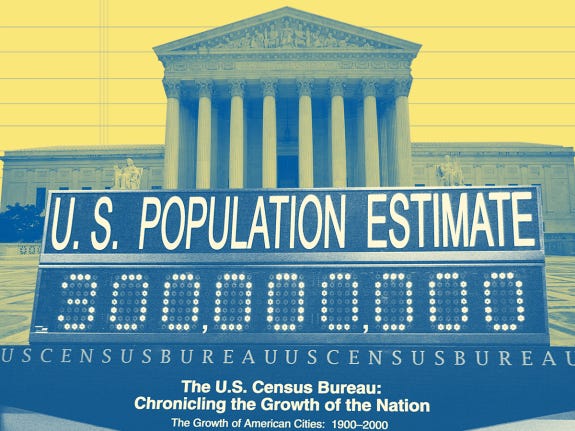4/29 – What’s Next
Hey there, hope you have a great start to your week!
Here is some more optimism to start your week with:
Between 1960 and 2007, the share of disposable personal income spent on total food by Americans, on average, fell from 17.5 to 9.6 percent – Data
Lots of interesting content linked below..reply to this email if you think I can be helpful.
Articles to Read.
The Anatomy of a Great Decision
Making better decisions is one of the best skills we can develop. Good decisions save time, money, and stress. Here, we break down what makes a good decision and what we can do to improve our decision-making processes.
In 1947, Secretary of State General George Marshall put forward a plan that has since carried his name, a plan to give a massive amount of money to several European nations. Those countries accepted, the continent was rebuilt, and Marshall is credited with one of the most positive defining acts of economics, politics, and ethics in the last century. But when you look at the thinking that went into the Marshall Plan, the reasoning behind the details, you see that it would have been a great decision regardless of the outcome.
—
Jeff Bezos: The electricity metaphor
Super fascinating (20-minute) talk delivered by Bezos in 2003 that talks about the future of the internet and how a “gold rush” is the wrong metaphor to be using.
—
Why are racing pigeons so expensive?

He is five years old, looks alert—thanks to some striking red eyes—and has a neck coloured with vibrant green and pink streaks. He is also a champion. In the past year he has won the equivalent of national, European and Olympic gold medals. When put up for sale online, he attracted interest from all around the world, as well as his native Belgium. His new, Chinese owner paid €1.25m ($1.41m) for him, more than three times the previous online-auction record. Armando is the world’s most expensive racing pigeon. But why have elite birds become so costly?
—
Agony of an African Programmer
In Africa there is a perception problem though, some people still think technology comes in a box like a camcorder, computer, laptop, iPad and so on. We need to all visualize technology as a process and something we are going to build ourselves here in Africa.
—
Have you ever felt awe and delight upon first experiencing a computer interface? An interface that surprised you with its strangeness, with a sense of entering an alien world?
As an analogy, compare today’s attempts to go to Mars with the exploration of the oceans during the great age of discovery. These appear similar, but while going to Mars is a specific, concrete goal, the seafarers of the 15th through 18th centuries didn’t know what they would find. They set out in flimsy boats, with vague plans, hoping to find something worth the risks. In that sense, it was even more difficult than today’s attempts on Mars*
Something similar is going on with intelligence augmentation. There are many worthwhile goals in technology, with very specific ends in mind. Things like artificial intelligence and life extension are solid, concrete goals. By contrast, new elements of cognition are harder to imagine, and seem vague by comparison. By definition, they’re ways of thinking which haven’t yet been invented. There’s no omniscient problem-solving box or life-extension pill to imagine. We cannot say a priori what new elements of cognition will look like, or what they will bring. But what we can do is ask good questions, and explore boldly.
—
Inside the Quietly Lucrative Business of Donating Human Eggs

Just before her 21st birthday, she typed “egg donation” into Google, and off she went. Over the next four years, Griffin donated her eggs six times at three different clinics. On four of those occasions, her ovaries became painfully swollen and she experienced weight gain, abdominal pain, severe nausea, and had trouble urinating; one time she was hospitalized. For her efforts, she was paid $61,000.
—
How The Citizenship Question Could Break The Census

Every 10 years, the Constitution requires the government to count all the millions of people living in the United States. The decennial census is a massive, painstaking undertaking that results in a national portrait in numbers. It tells us how many people live here, where people have moved and how our country’s racial and ethnic makeup has changed. And today the Supreme Court will weigh whether asking respondents whether they are U.S. citizens would undermine the census’s mandate to count every person.
Questions related to a person’s citizenship did once appear on the census, but historians say the phrasing and intent of those earlier questions were different — and, in any case, they were removed from the main head count after 1950 in a bid to improve the census’s accuracy. Meanwhile, social science methods have evolved to the point that high-quality citizenship data can be — and already is — collected via other Census Bureau surveys and administrative records. So the Trump administration is facing an important question: Why add a question to the census that could harm the quality and credibility of the data — and also may not be necessary?
┄
More to Check Out:
– Dear Freshman Me (What I would tell my former self)
– The Word of the Day Is
– I Sell Onions on the Internet
– Winner Of French Scrabble Title Does Not Speak French
– Video Games for Doctors
Books I Read This Week.
FAQ: I read to explore my curiosity (and lately, I have been reading a lot)
Here is my 2019 bookshelf
- The Wobbling Pivot, China since 1800: An Interpretive History: Strong rec if interested in empire building / China. Comprehensive overview of relationship between central gov’t and communities. Long-term thinking!
- The Family Office Book: Investing Capital for the Ultra-Affluent – Overview of history/how traditional family offices work. Lots of interviews with CIOs and fund managers.
Let me know if you have/need any recommendations!
My Update.
- 3 weeks left remaining of school – good luck to those finishing up!!
- What city will you be in this summer?
- Important week ahead…will see what happens and keep you in the loop.
Thanks so much for reading! Find me on twitter : )